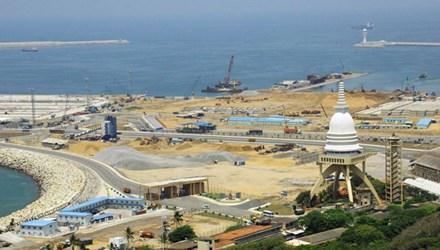
COLOMBO, April 11: Sri Lanka has continued to post commendable outcomes from its post-crisis reform agenda, supported by the International Monetary Fund (IMF) Extended Fund Facility (EFF), said a visiting IMF staff team to the country.
In a statement issued here today, Evan Papageorgiou, who is heading the IMF staff team’s visit to the island nation (April 3 to 11), said the post-crisis growth rebound of five percent in 2024 was impressive.
“Inflation declined considerably in recent quarters and has fallen to ‑2.6 percent at end-March 2025. Gross official reserves increased to US$6.5 billion at end-March 2025 with sizeable foreign exchange purchases by the central bank. Substantial fiscal reforms have strengthened public finances.”
He, nevertheless cautioned against external developments and its potential impact on the country’s growth.
“The recent external shock and evolving developments are creating uncertainty for the Sri Lankan economy, which is still recovering from its own economic crisis. More time is needed to assess the impact of the global shock and how its implications for Sri Lanka can be addressed within the contours of its IMF-supported program.
“The government’s sustained commitment to program objectives is ensuring policy continuity and program implementation remains strong. Going forward, sustaining the reform momentum is critical to safeguard the hard-won gains of the program and put the economy on a path toward lasting macroeconomic stability and higher inclusive growth.
“Against increased global uncertainty, sustained revenue mobilization efforts and prudent budget execution in line with Budget 2025 are critical to preserve the limited fiscal space. Boosting tax compliance, including by reinstating an efficient and timely VAT refund mechanism, will help contribute to revenue gains without resorting to additional tax policy measures. Avoiding new tax exemptions will help reduce fiscal revenue leakages, corruption risks and build much needed fiscal buffers, including for social spending to support Sri Lanka’s most vulnerable. Restoring cost recovery in electricity pricing will help minimize fiscal risks arising from the electricity state-owned enterprise.
“The government has an important responsibility to protect the poor and vulnerable at this uncertain time. It is important to redouble efforts to improve targeting, adequacy, and coverage of social safety nets. Fiscal support needs to be well-targeted, time-bound, and within the existing budget envelope.
“While inflation remains low, continued monitoring is warranted to ensure sustained price stability and support macroeconomic stability. Against ongoing global uncertainty, it remains important to continue rebuilding external buffers through reserves accumulation.
“Discussions are ongoing, and the authorities are encouraged to continue to make progress on restoring cost-recovery electricity pricing, strengthening the tax exemptions framework, and other important structural reforms.
During its visit, the IMF team held meetings with Sri Lanka President and Finance Minister Anura Kumara Dissanayake, Prime Minister Dr. Harini Amarasuriya as well as other members of its Cabinet ,Central Bank of Sri Lanka Governor Dr. P. Nandalal Weerasinghe and other senior government and CBSL officials. The team also met with parliamentarians, representatives from the private sector, civil society organizations, and development partners.
Evan Papageorgiou said discussions would continue with the goal of reaching staff-level agreement in the near term to pave the way for the timely completion of the fourth review.
— WE